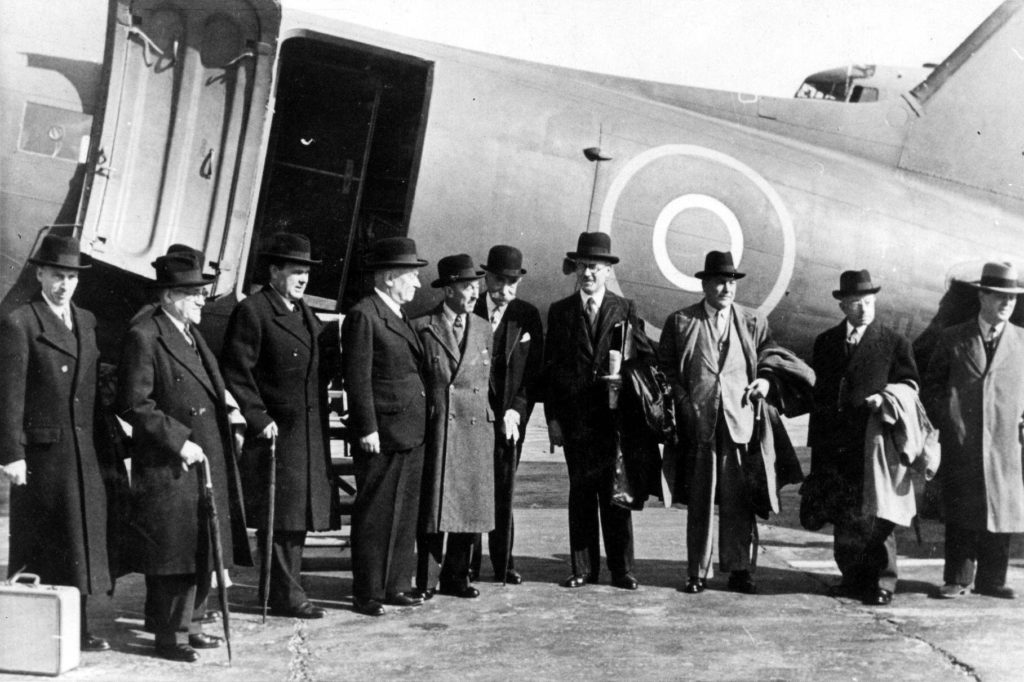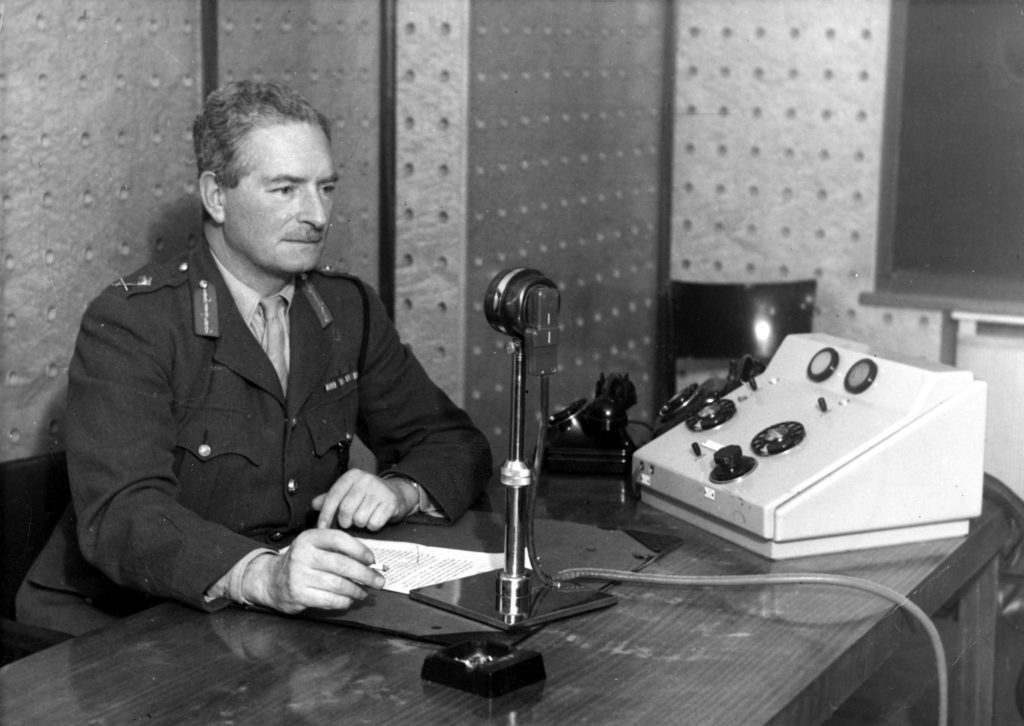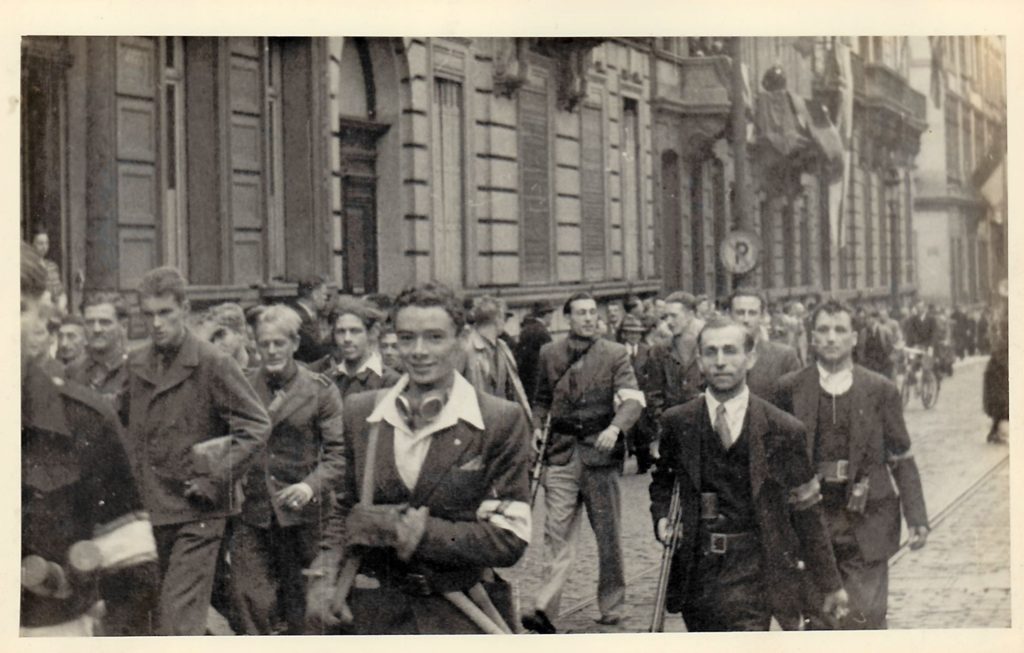It was on 10 September 1944 that British Major-General George Erskine (1899-1965) arrived in Brussels. He stayed there until the summer of 1945. On behalf of the highest Allied authorities, he exercised supreme authority to the extent required by military necessity.
Allied forces played a decisive role in the rapid liberation of Belgian territory. But their role was not limited to military combat. Indeed, at the Liberation, authority over certain aspects of Belgian political life was in the hands of the allied military more specifically the Supreme Headquarters of the Allied Expeditionary Force (SHAEF) or Staff of the Allied Expeditionary Forces in Europe. The SHAEF Mission to Belgium and Luxembourg was led by George Erskine.
From Brussels, Erskine worked closely with the Belgian Civil Affairs Mission. If, at first, the situation seemed rather straightforward, especially when compared to France for example – the Belgian government-in-exile in London government had resumed exercising its prerogatives – it became more complex over time.
For the Allies, the maintenance of order was essential. At the Liberation, who could they trust? Who were the resistance fighters and what were their objectives? The Allies were particularly wary of communists. The aim was to make the resistance understand as soon as possible that its role was over and that it must hand over its weapons. In their view, the Belgian government was not firm enough on this issue. As a result, the question of disarming the resistance would only be finally resolved in November 1944.
Keeping Allied troops and the local population supplied with basic necessities was another key issue. This continued to remain a delicate balancing act for military and local authorities and there was considerable concern that it would lead to social unrest and therefore strengthen the position of the communists. Thankfully, the situation gradually improved from the beginning of 1945 onwards.

With the help of Fédération Wallonie-Bruxelles and in partnership with CEGE-SOMA.



